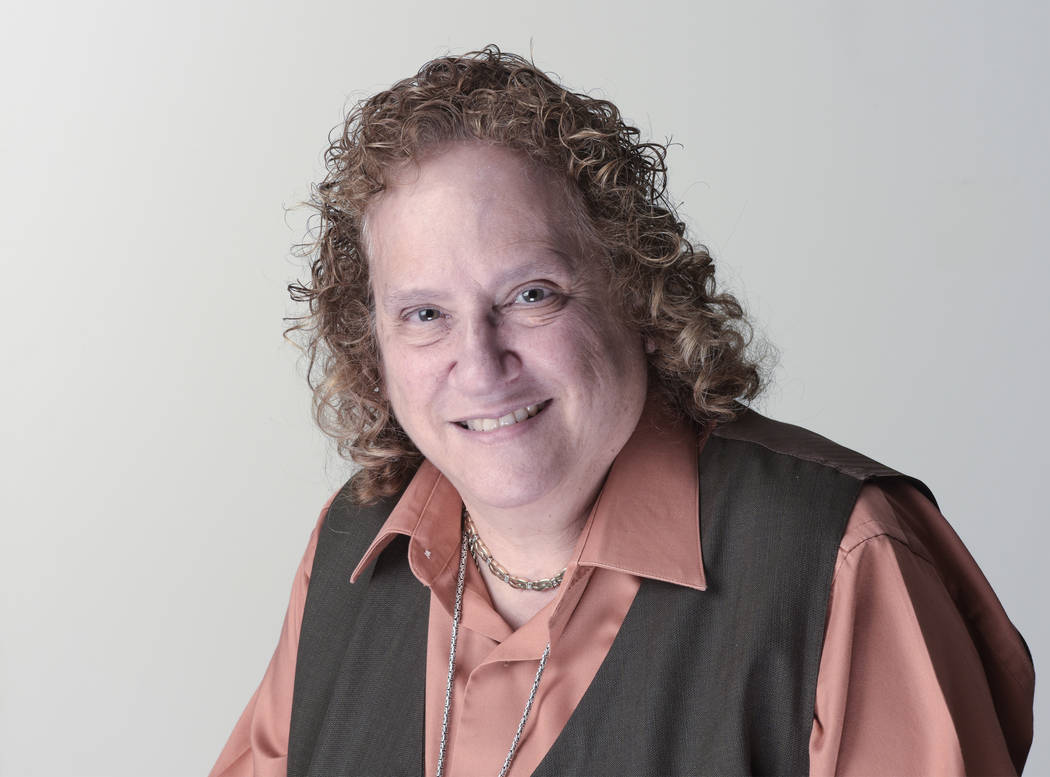Trade publication does QA on Barbara Holland

Editor’s note: This column first appeared in the Community Interests, a publication for Community Associations Institute, Nevada chapter.
This month, we are looking at perceptions and how to change the conversation from the negative to the positive. There are some familiar names that conjure the negatives of the homeowners association industry. But there is also a very positive voice for our HOA industry, and that name is Barbara Holland. She evokes a sense of the positive, fairness, and accuracy in her answers to homeowner questions found each Sunday in the real estate section of the Las Vegas Review-Journal.
Q: How did you become introduced to the HOA industry as a career?
A: As a child, I wanted to become the first woman president (still have a chance at that), the first woman to land on the moon (still have a chance at that) and the person who cured cancer (still have a chance at that). At no time did I think that I would become involved in any aspect of real estate — from brokerage, leasing, property management or community management. I fell into this profession by accident.
In the 1970s (I am aging myself), the first major recession occurred during my lifetime. I had just graduated with a master’s degree and found myself to be overeducated and unemployed. I was going crazy not being kept busy as I tried to find employment in New England. There was an advertisement in the papers at $100 a week (and that was low even for the 1970s) to be a receptionist for a real estate investment and management firm in West Hartford, Connecticut. I had to persuade the office manager to even let me be interviewed. The advertisement indicated that there was an opportunity for growth. There was. By the time I left this firm, I had a broker’s license in Massachusetts and Connecticut.
At that time, there was no requirement to hold a special association management license or certificate. I started my own full-service real estate company in East Hartford, Connecticut, specializing in property management with a few associations. The real growth in associations came in the late 1970s.
When I moved to Nevada in 1977, the community management profession was just really starting as many associations were actually being “managed” by accounting firms. Nevada Revised Statute 116 and the subsequent licensing laws were just beginning to come to fruition.
Q: Do you get fresh ideas for your role from other Community Associations Institute members. Is the networking factor a valuable resource for you?
A: I absolutely believe in networking. There is always a better way. Networking can be as “simple” as finding out what service companies community managers are using: landscaping, pools or asphalt. The information included in the CAI materials can assist community managers in finding reputable companies that will properly service your communities.
Often, we talk with each other about the frivolous lawsuits or the constant complainer who writes letters to the ombudsman on a daily basis, that difficult board member or that dysfunctional board of directors.
We listen to other CAI members and how they dealt with these simple and hard problems that we face on a daily basis. Why make the same mistake if you can learn from others? Over the years, receiving good technical information has helped me greatly in dealing with severe maintenance problems.
Q: What predictions do you have for the HOA industry in the future?
A: Unfortunately, I see continued legislation in a profession that many feel is already over-regulated. The exception problem becomes the new law (pizza delivery man law as an example).
We need to present association management and association managers in a more positive light, and that information needs to be delivered not only to our legislators but to the public. Think about the amenities and services that associations pay that do not come from the general tax revenues, from streets, street lights and sidewalks.
We save the average taxpayer in this state thousands of dollars, if not millions. Where else can a homeowner use a swimming pool or exercise room without joining a gym for those associations that provide those amenities? As to the community manager, think about the skills that we need to perform our job.
Hopefully, CAI will help to bring a better balance to the laws that regulate our associations and our licenses.
I see more technical advances that will help reduce human resources so that we can better concentrate on the people issues and not just be a computer printing out financials and sending violation letters. These cellphone applications will continue to improve helping us reduce the violation processing time and sending text messages to our homeowners with the traditional communication avenues of letter writing and sending eblasts.
We will probably see some more changes in the current laws that will allow us to use other communication methods in all aspects of NRS requirements. I see continued improvement in our websites, making them more user-friendly and increasing two-way communication so that we can respond to our homeowners in a more efficient and timely manner. CAI can assist managers by developing seminars and classes on the more common applications and how to use them.
I see the need for the universities and colleges to offer classes in community management besides those classes needed for licensing. Can you imagine a degree in real estate community management?
Think about all of the disciplines that we need to have some common knowledge. We definitely have a shortage of community managers. For many current managers, they literally started from the ground up, similar to my experience by answering phones, doing administrative work or by providing maintenance.
We see a high turnover as this is a management-intensified profession that can easily burn out our managers who work beyond a 40-hour work week every week. Many managers are single parents.
Being able to use the advances in technical applications and software allow much of our work to be done at home. CAI can become the leader in advancing the professionalism in the management of our associations.










